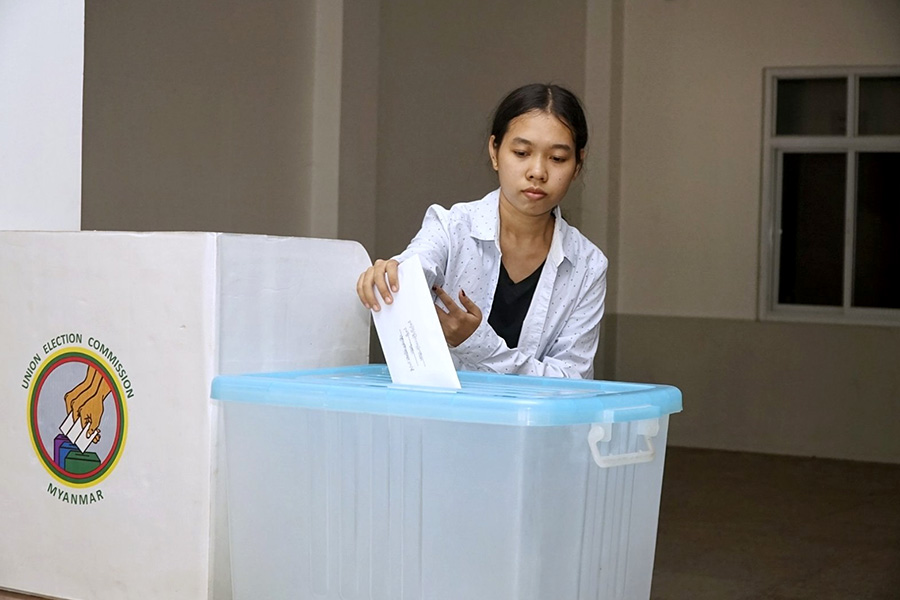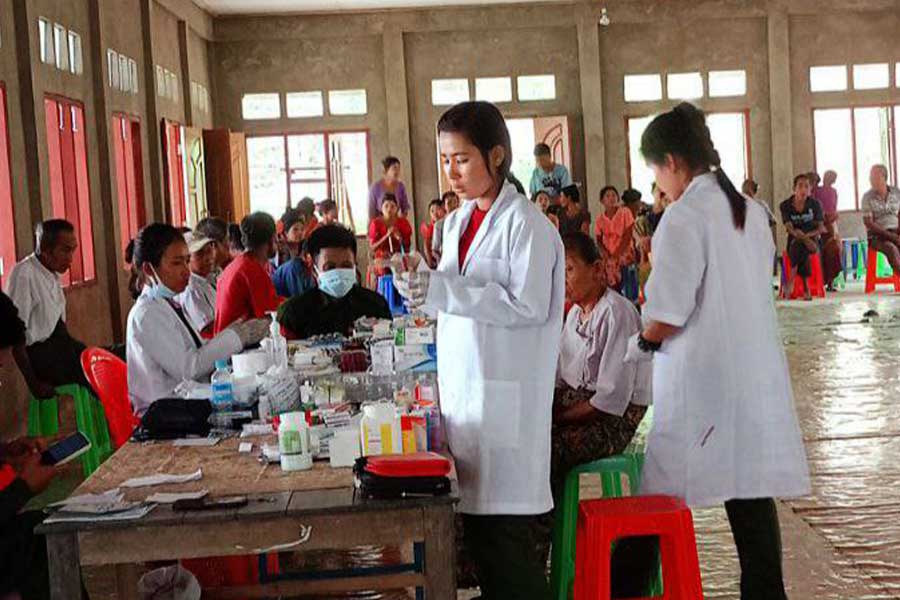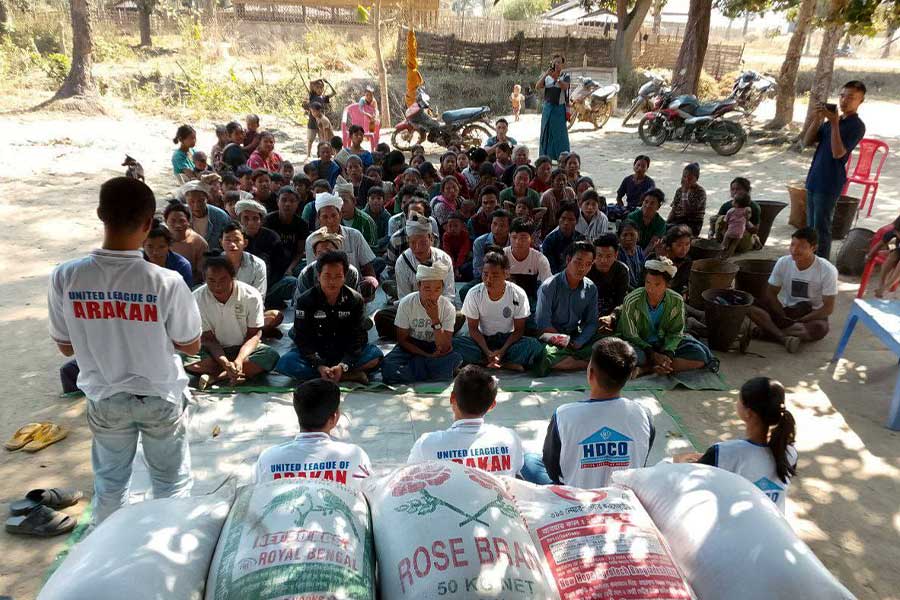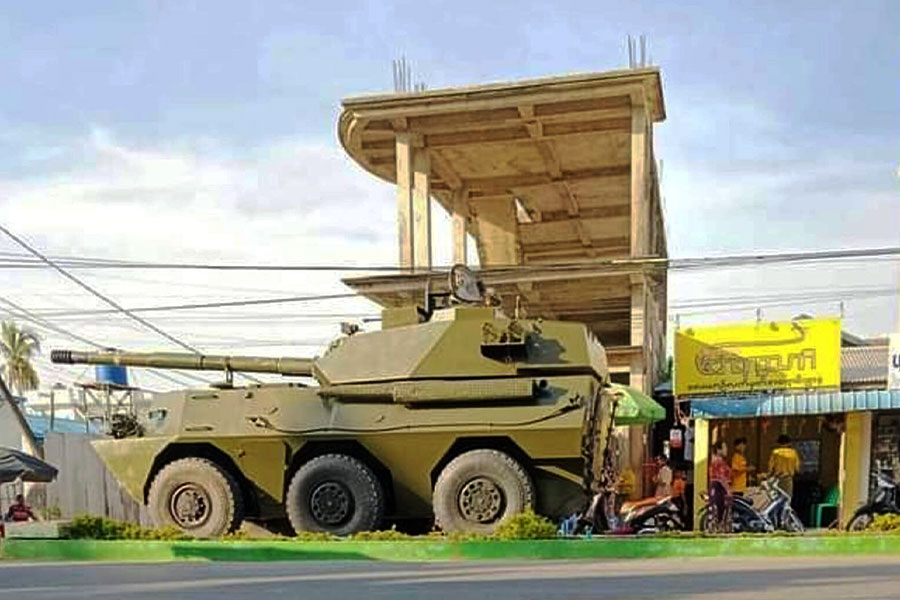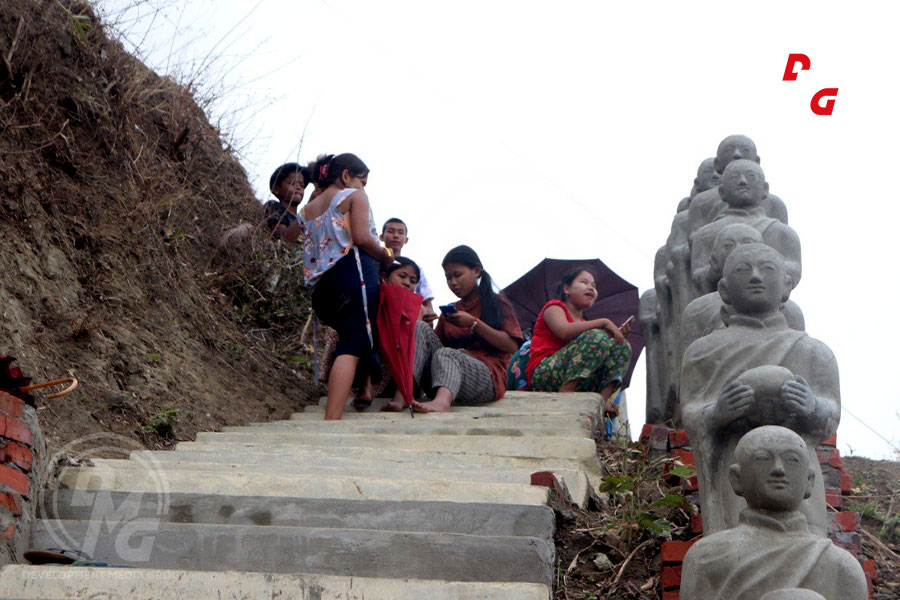- New Diplomatic Movements Between Bangladesh’s New Government and the Arakan Public Administration
- Junta claims over 24 million ballots cast in 2025 poll, cites strong youth turnout
- ULA expands HIV prevention, healthcare services for sex workers in AA-held areas
- Over 600 Mro villagers displaced in Maungdaw amid threats from ARSA, RSO
- Clashes continue in Sittwe as junta reinforces naval, armored deployment
Cyclone Mocha is latest factor driving worker exodus from Arakan State
Residents say the number of young people doing social activities in the rural parts of Arakan State is gradually decreasing due to the departure of young people for opportunities overseas.
08 Jul 2023
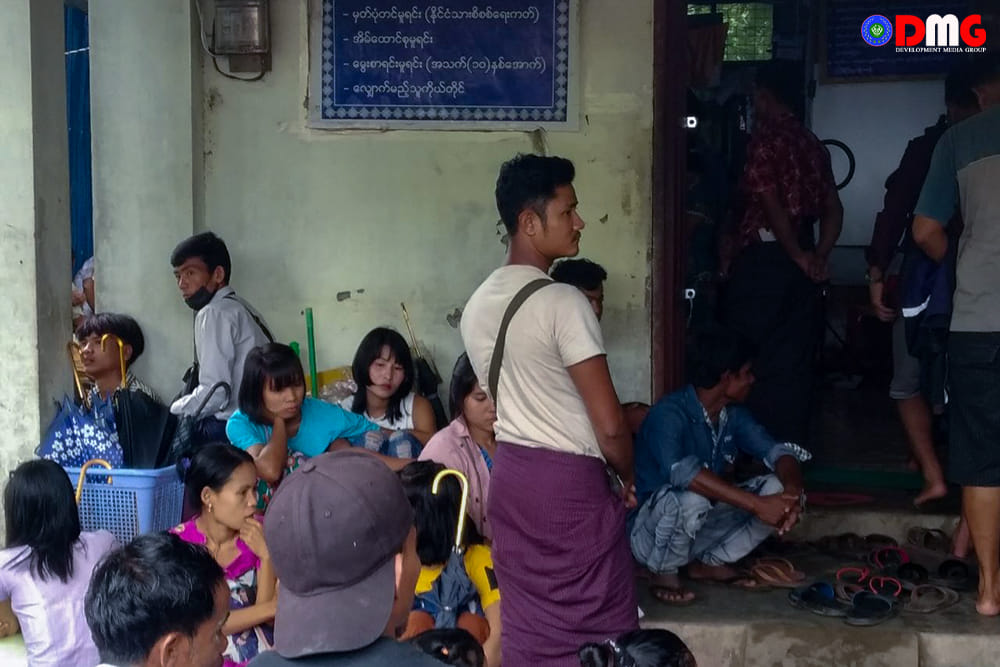
DMG Newsroom
8 July 2023, Sittwe
Local people in Arakan State are facing unprecedented socioeconomic crises due to the lack of jobs, rising commodity prices and a difficult road to recovery from the devastation wrought by Cyclone Mocha. For many, going abroad in search of work is viewed as the remedy to these pressures.
Residents say the number of young people doing social activities in the rural parts of Arakan State is gradually decreasing due to the departure of young people for opportunities overseas.
“Previously, young people did social activities in the village. Almost all young people have left for Thailand and Malaysia for work. Five young people departed for Thailand just yesterday,” said Daw Nu Nu Sein, a resident of Layhnyintaung Village in Mrauk-U Township.
Layhnyintaung Village, which has a population of more than 2,000, previously had more than 300 young people between the ages of 15 and 30, but only about 30 are reportedly left.
There were about 70 young people in Kyauktaw Township’s Wapyan Village in 2022, but only about 10 young people remain in the village following the cyclonic storm.
“Young people in our area go to China for work. They reportedly have to pay about K4 million to human traffickers to get them to China. Elderly people and a few young people remain in the village. Many young people are going abroad,” said Ko Nay Myo Lin, a local man from Wapyan Village.
About 80 percent of the young people from several villages in Kyauktaw Township have gone abroad to work, according to the villagers.
Residents in Rathedaung Township, where more than 90 percent of homes were damaged or destroyed by Cyclone Mocha, said the rate of young people leaving for overseas locales has increased due to livelihood hardships.
“Many people go abroad due to the scarcity of jobs in Arakan State. Some people have entered Thailand or Malaysia through illegal routes to find work. Some apply for passports to go abroad legally. A few people remain in the village,” said Ma Thein Than Htay, a resident of Hsarpyingyi Village in Rathedaung Township.
Men — and more specifically, single men — are the most represented demographic: There were about 60 bachelors in Hsarpyingyi Village last year, but now only seven bachelors remain in the village, according to villagers.
Arakan State is the second poorest among Myanmar’s regions and states, and since the February 2021 coup, the combined pressures associated with the catastrophic economic consequences of the military takeover have led to an increase in the rate of local residents leaving the state.
Veteran Arakanese businessman U Khin Maung Gyi said that although the rates of departure may be higher in Arakan State, the exodus of young workers to foreign countries is a problem for Myanmar as a whole.
“The number of young people leaving for abroad is increasing because of the dire [lack of] employment opportunities in Arakan State. The employment situation in Rakhine [Arakan] State is even worse because it is hopeless. If the rate of young people going abroad increases like this, Arakan State will lose human resources,” he said.
Locals in Arakan State primarily go to Malaysia, Thailand and China for work. More often than not, for a variety of reasons, they seek illegal routes out of the country for jobs rather than the legal pathway, according to organisations that assist migrant workers.




